What Does It Take to Build A $100M Company – Matrix?

And beat the odds that only 1 in 6,300 will reach this level of annual sales. The attached diagram shows the skills, systems and experience needed on that team. Each cell would take at least 5 years’ experience to acquire and master that skill area. So, we are looking at 100 years of experience cumulative for the company as a whole.
Most people think they are “ready to scale” as soon as they have some sales. This is never true. In fact, you need at least 4 levels of stuff in 5 business areas, or your odds of success are very low. This can be thought of as the “do, hire/train, manage, plan” levels too. And maps into individual contributor, manager, executive and CEO/board (long-term vision stuff).

It takes many years to acquire the skills needed to build a significant company. Anyone can build and run a small company with ~7 people. After that, the skills required are very different. And you need a senior team (c-suite or...
What are the benefits of bootstrapping or self-funding a startup instead of accepting outside investments?
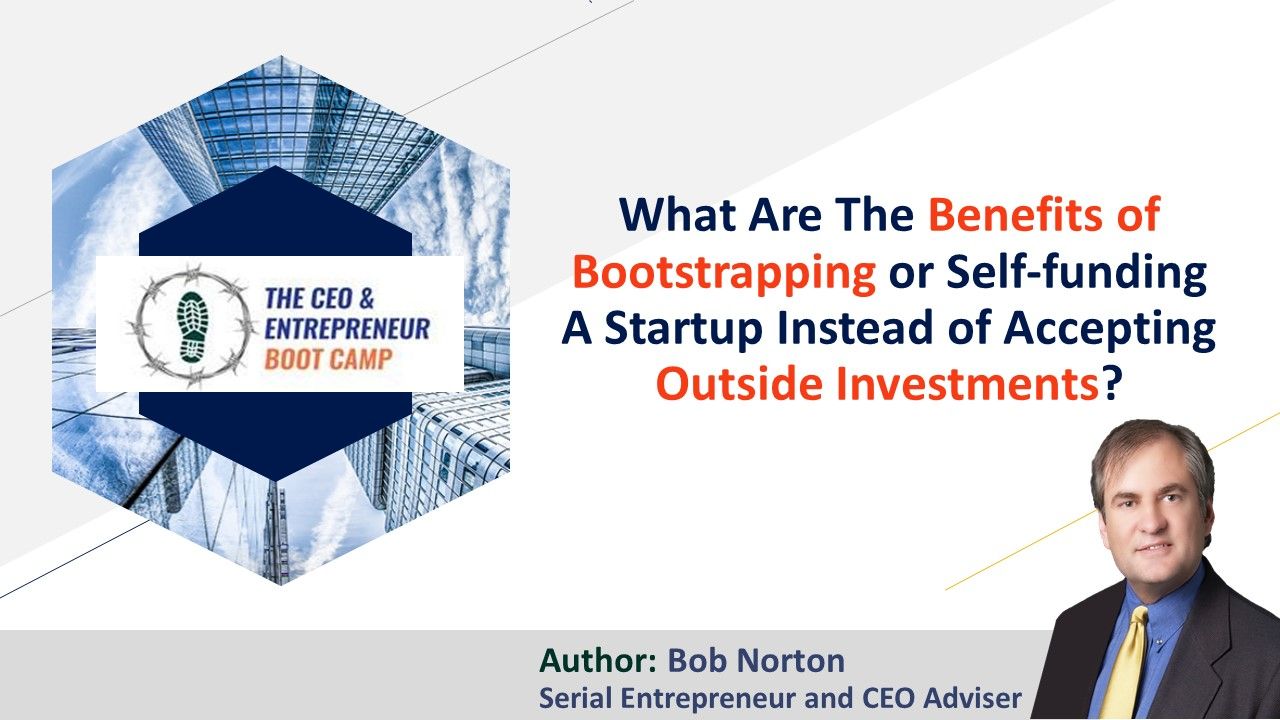
Typically, you cannot get outside funding until you have developed some team, plans and an MVP product (minimum viable product or prototype) from serious investors. People are misled by headlines thinking they can raise millions from outside investors with none of these. That only happens if you already made other investors rich, in which case it is likely you would fund your startup’s seed stage yourself to prevent early dilution.
Over 80% of startups fail because the founders underestimate the skills and team required. There are about 40 skills sets needed to build a scalable startup. Usually this requires a team of three people with 15+ years’ experience each to launch successfully. The college graduate that built a $100M startup is a myth propagated by ignorant reporters who fail to look behind the front person and just want headline click bait.
Bootstrapping is done because most need to do that with personal, co-founder and friends and family money to complete...
Is it the VC that proposes the amount for the pre-seed startup or it is the CEO that claims what amount is needed?
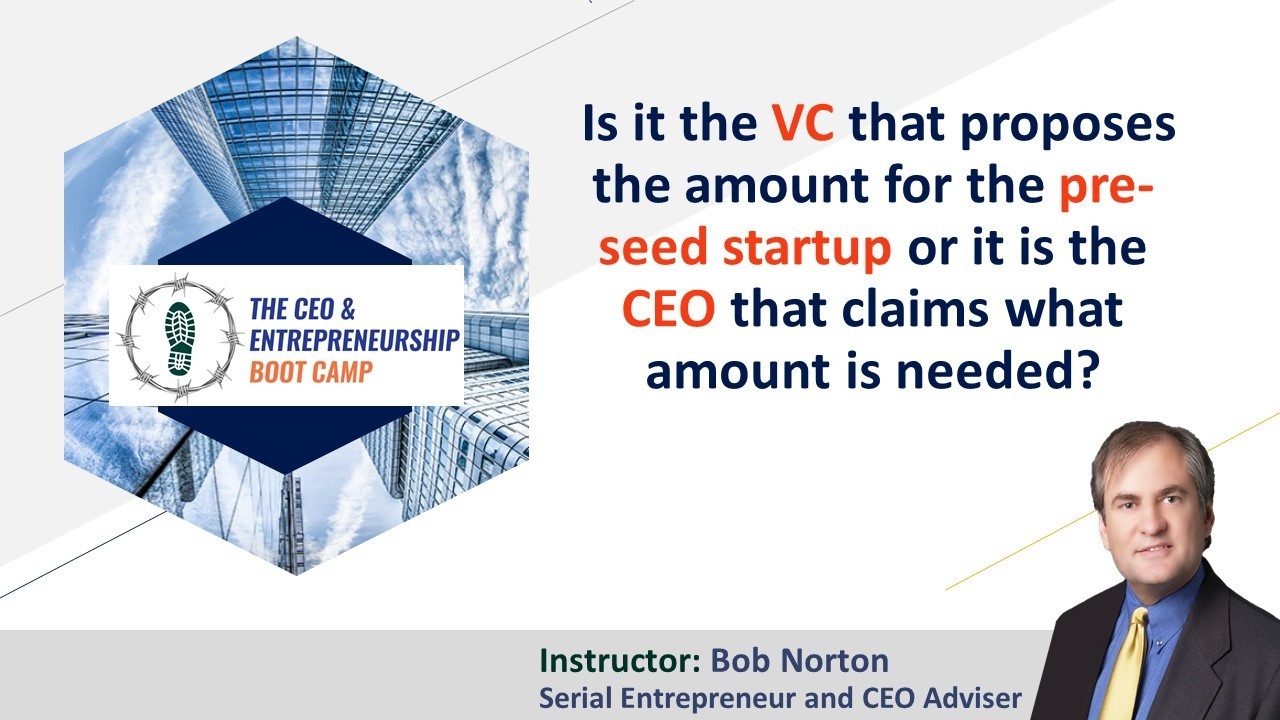
No good investors would want to invest in a company where the CEO did not have their head around the capital needed. A financial projections and plan is required to even get a meeting with most investors. That said, there can always be some back and forth negotiations. A VC might want to put more money in to scale faster. A CEO wants minimum dilution and to get the valuation up by achieving key milestones like MVP, traction, team building and quantification of customer acquisition costs. All of these reduce risk and hence increase the share and valuation price.
Click here to check our all Certification Programs

Pre-seed means smaller amounts and lower valuations because the risks are high. Contrary to popular belie, very few VCs do these stage deals, unless it is a team that has made lots of money for investors before. Typically, these rounds are $250,000 to $500,000 and done by angel investors.
You can see my free webinar on preparing your company to raise...
Is crowdfunding on Kickstarter and Indiegogo an effective financial strategy for startups?
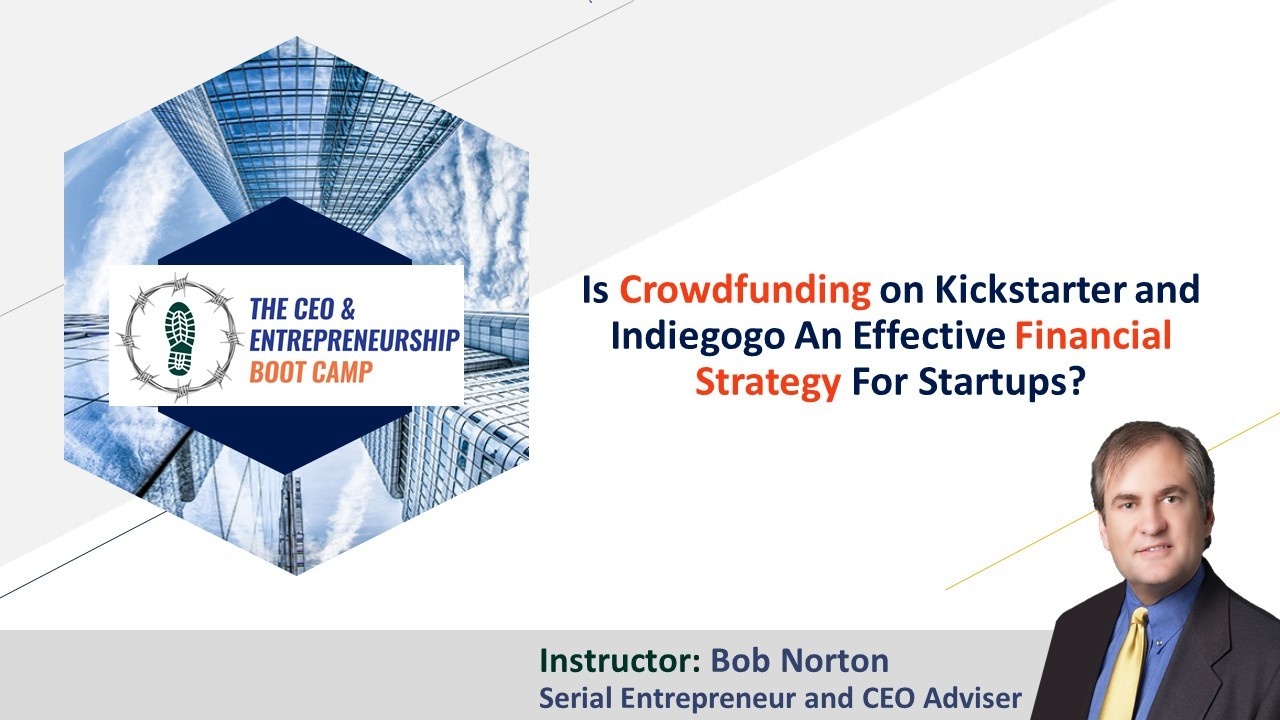
Crowdfunding has a place, and I am excited about its growth possibilities in certain areas. The funding raised has been about doubling each year for some time now.
It is generally for consumer-oriented companies where the vote of the consumer matters. This is a test of the product demand as well as a way to raise funding for a production run of an early version.
Recently the amount that could be raised was increased to $20 million via crowdfunding and the amount of fraud has been low. Of course, the average consumer does not have the skills to evaluate a company, team, market opportunity, and strategy well. And this takes real work. So essentially, they are just betting on the product concept. And since the amount of money raised is generally small (~$100K-$250K) it is enough to replace the traditional “Friends and family” money when the founders have no wealthy family or past success to roll their gains into the next business.
Of course, even professional venture...
How hard is it to get outside investors and Do I need revenue to get outside funding?
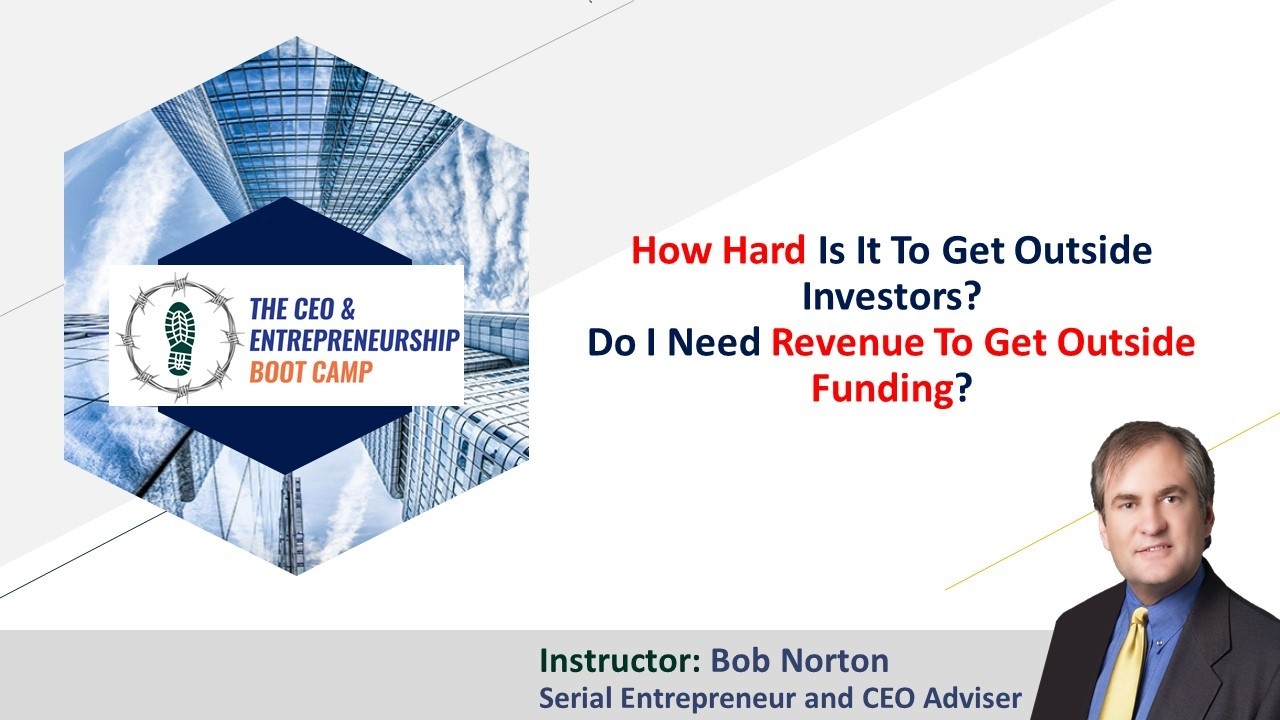
Very hard, maybe 1 in 400 deals VC looks at will become a closed deal that they invest in. Most go in the circular file. More than 90% of companies never get any outside investors of any kind. This does not include bank loans based on assets and cash-flow which is much easier to get because the banks (not investors really, they are lenders) have security and do not take risks like early-stage investors.
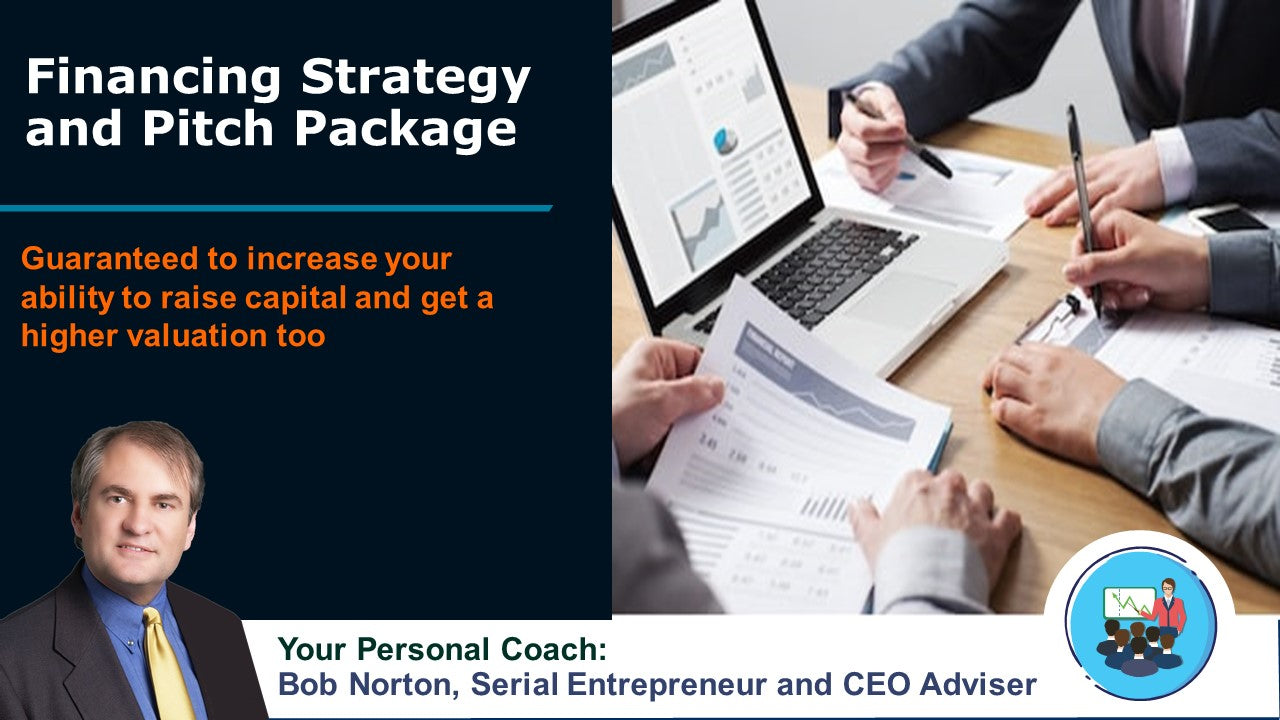
Click here to get this Financial Package
Although revenue is helpful, and opens many more options, it is not required by angel investors. Most VCs require some revenue to know you have a proven “proof of concept” meaning both a product and a market/sales process that can close deals. This is less true in biotech, pharmaceuticals and medical where product development approvals are far longer and may require FDA approval.
 | Learn more about our Growth and Scaling (GSP) |
| For a free video consultation... |
What are some common misconceptions people have about raising capital?
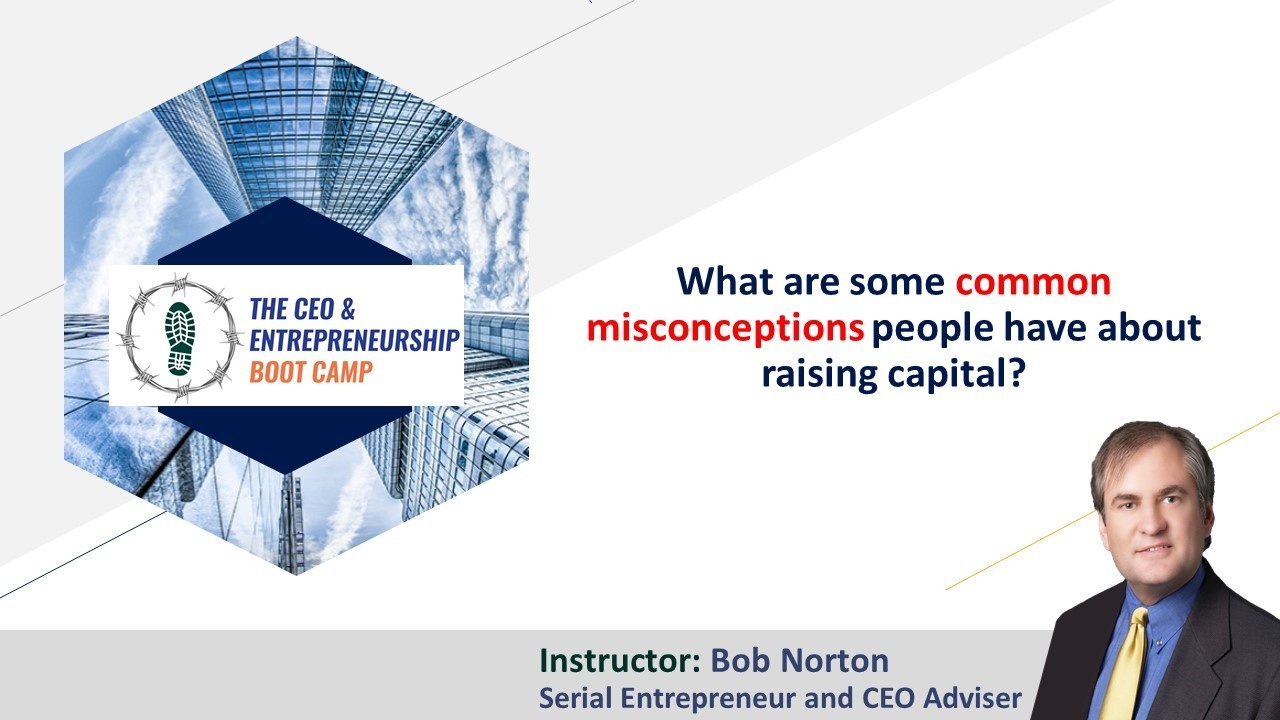
1. Thinking it is easy. It will typically take 3–6 months of full-time effort. 80% will fail.
2. That the “Idea” is worth something. It is not worth $0 because anyone can copy an idea and do better at marketing, sales, product development or just dump capital on that idea
3. Thinking VCs are the best source, they are the worst for 90% of businesses. They finance at most 1 in 200 plans and represent a tiny percentage of business financing. A narrow niche of rapid growth, technology based companies mainly.
4. A company has value on day #1. It does not! Value and pre-money valuation come from team + plan + market research + product development. Investors generally put money in only AFTER value is created.
 | Learn more about our Growth and Scaling (GSP) |
| For a free video consultation call on what your |
The pitch deck...




